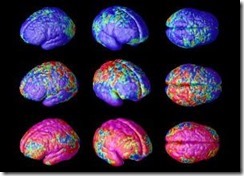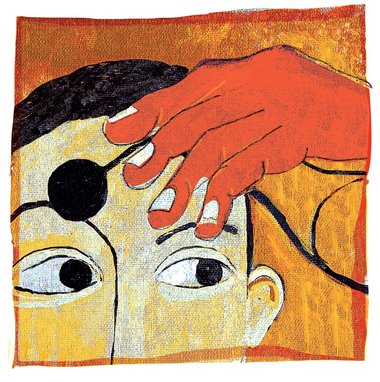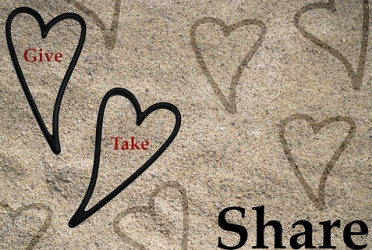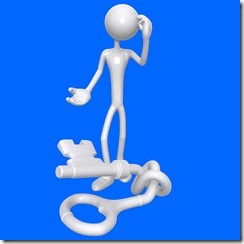Potential outcomes of brain injury including behaviour, cognitive, social, emotional.

Image from Boston.com
There are over 7 billion brains in the world today and you carry your own portable version (your very own brain), with you all the time. Worth taking a little of your time to understand it. Think of this as a user manual. I believe a bit of an understanding about the brain can help when trying to understand the outcomes of brain injury. When you develop strategies, learn skills such as not taking things personally, when you want to link what you see, such as behaviour, and brain injury. Understanding of the brain can help. Today is a beginning; structure and function of the overall brain. I set myself two challenges: the first to keep it brief, the second to keep in interesting. Let me know how you think I did in the Comments. The Brain From the Bottom Up A 'User Manual' should really cover the whole Central Nervous System (CNS) but that would be HUGE. So here is a…
Today the topic of 'Brain Injury' gets streeeeeeeeetched. The reason for this is that I recently made two discoveries. One was that the Readers Digest magazine is still being published. While flicking through a copy I made a second discovery: an article about Echolocation. I found it fascinating. People using a kind of human sonar to navigate their world. I really wanted to share this discovery so I set out to find a way to link the topic echolocation with brain injury? The following is what I came up with. Attempting to Link Echolocation and Brain Injury Once I put my mind to it the links leapt out at me: [unordered_list style="tick"] Echolocation highlights just how amazing the brain is and its capacity to learn new skills. It demonstrates that sometimes, with training and determination, new skills and new brain pathways can work around difficulties. It reminds us we do not fully use all our capacities. We could train ourselves to…
This article has been updated please visit "Brain Injury - Strategies for Organisation, Planning and Problem Solving" At times we all have trouble trying to work out how to solve a problem. Times when we can’t seem to make a decision. Or we make a decision and then think “Why did I ever do that”. Brain Injury particularly when it involves the frontal lobe, commonly results in similar difficulties with working through problems, and making good decisions. The difference is the difficulty problem solving after brain injury might not go away. A little disclaimer here. Talking separately about cognitive (or executive) functions is not entirely sensible as everything the brain does is linked. I am going to go against my own good advice and do it anyway. Decision Making and Problem Solving after Brain Injury: What Can Happen? Problem solving and decision making difficulties after brain injury will be different in each person. One person might leap to a solution without considering…

Image Andrea Levy, The Plain Dealer
Believe it or not, even today, diagnosis of brain injury can be missed, or incorrectly diagnosed. Depending on the cause and outcomes diagnosis of Brain Injury can be difficult. And diagnosis can be overlooked. When conducting training sessions about Brain Injury for support workers and family, it was common to come across stories of Brain Injury not diagnosed. On a number of occasions a participant realised during the session, that a family member, or they themselves, had a Brain Injury that had not been picked up. Or it had been diagnosed as something else. Mis-diagnosis of Brain Injury The diagnosis of Brain Injury, such as traumatic brain injury (TBI), dementia, brain tumour can be overlooked. [box]‘James’, had a serious accident on his motorbike. He was taken to hospital and treated for multiple fractures. After returning to work, his family and colleagues notice he was less able to concentrate, he was forgetful and easily frustrated. His broken bones had mended but the diagnosis…

Image by Lotte Grønkjær
What if we changed our thinking? What if we focussed more on what a person could be contributing after brain injury? Rather than what's going wrong and what help is needed? Today I am going to indulge an idea I have nurtured for a long time. The idea of supporting people living with brain injury who wish to give, or contribute to find a way. It has been prompted by the giving frenzy that accompanies many people celebrating Christmas, and an article in DailyGood. The topic on DailyGood that caught my eye was “The Neuroscience of Why Gratitude Makes Us Healthier”. The article talks about how doing good, and being thankful can impact our health – in a good way. We hear how giving and contributing are good for us. How it helps build communities. Generally we humans like to be, and to feel, useful. Mostly we get a kick out of doing something for others. [box size="large" style="rounded" border="full"]I remember a story…
Today I am setting myself a less serious challenge. Can Winnie the Pooh teach us something about brain injury? What can the simple words and philosophies of Winnie the Pooh and friends, by A.A. Milne teach us about supporting each other? Can the wonderful language of Pooh guide us when supporting people with brain injury? Look up what Winnie the Pooh has taught people on a Google search and it will include teaching us about life, about understanding, about Taoism, about media multitasking, even about sweepstakes!! Here is my addition; looking at what Winnie the Pooh can teach us about supporting people with brain injury. Below are quotes taken from Winnie the Pooh and other books by A.A. Milne with just a few of the lessons we could take. The more I read, the more I continue to find. “It is more fun to talk with someone who doesn't use long, difficult words but rather short, easy words like "What about lunch?”…
'Lack of insight' describes a common outcome of brain injury. I believe this term needs great care to understand properly and respond to appropriately. It takes a careful, thoughtful, approach to see it as a description; an outcome of brain injury; and not a criticism, or a negative comment. For people with brain injury this is a real outcome caused by damage to the brain. It is not deliberate. Maybe using the correct term ‘Anosognosia’ would help depersonalise the term. If you heard a person had ‘anasognosia’ would you think and respond differently, than hearing a person has a 'lack of insight after brain injury'? How Does Lack of Insight After Brain Injury Happen? Insight refers to a person’s ability to see their situation as it is. The skills needed to do this effectively are managed mainly by the frontal lobes. If damage occurs to the frontal lobe of the brain, there may be difficulties recognising and accepting changes. Difficulty seeing…
Back to basics with a look at the potential changes and outcomes of brain injury. In brief - if we think about the brain controlling everything we do: then damage to the brain can affect everything we do. Seven points to remember about the outcomes of brain injury Before talking more about specific outcomes here are seven points to remember: Brain injury is complex and difficult to fully understand. An organ that can boast 100 billion cells has got to hold a few surprises for us all. Mostly the part of the brain damaged will determine the physical and cognitive effects. All parts of the brain are closely linked and work together so predicting the exact outcome can be difficult. The combinations of cognitive and physical effects following brain injury are different for every person. The outcome is random. Many years ago Headway Victoria in Australia used the analogy of acquiring a brain injury being like dealing a deck of cards, you…
Understanding and managing changes to behaviour after brain injury is the most frequently requested topic I can recall. It contributes significantly to lifestyles being restricted. Today a simple start by thinking about changes to behaviour after brain injury by ONEs! There is no ONE solution for changed behaviour after Brain Injury Many, many, many supporters and family members over the years have asked for the magic potion, the one solution that will fix all, the magic wand that will make an unwanted behaviour disappear. Unfortunately we have not found it yet. Mostly, it is less stressful to forget magic solutions and begin the longer, but potentially more productive, path of planning and developing tailor made strategies for each behaviour. ONE strategy does not fit all Not only is there is no one solution for changing behaviour after brain injury, there is no one strategy to fit all situations and all people. The complexity and differences between people with brain…
You will likely hear how life changes after brain injury in many, many, ways. Both big and small changes. Changes such as no longer being able to work, not being able to get to the corner shop to buy a snack, relationship changes, or finding that watching a movie is no longer enjoyable, as it's too hard to follow. Today the discussion focuses on the changes and losses that can come with life changes after brain injury, along with some ideas for strategies to support a person live life after brain injury. This article, and the introduction last week focus on the life changes after brain injury. You can read the full article Brain Injury Life Changes or below are some key points to remember: The losses associated with life after brain injury are often underestimated by everyone involved. While the physical and cognitive affects of brain injury are different for each person, the impact on their lives can have similar…



